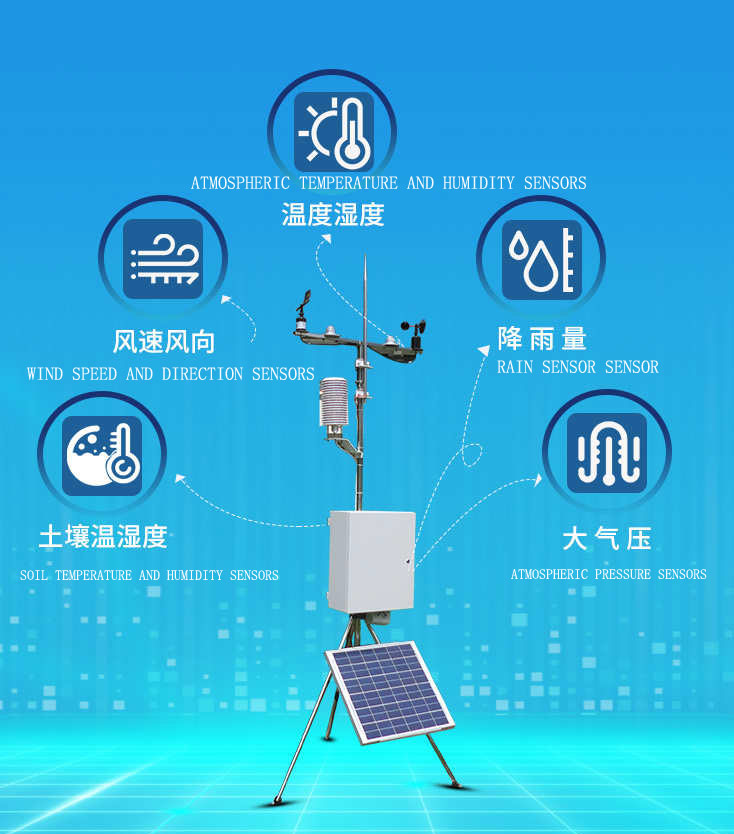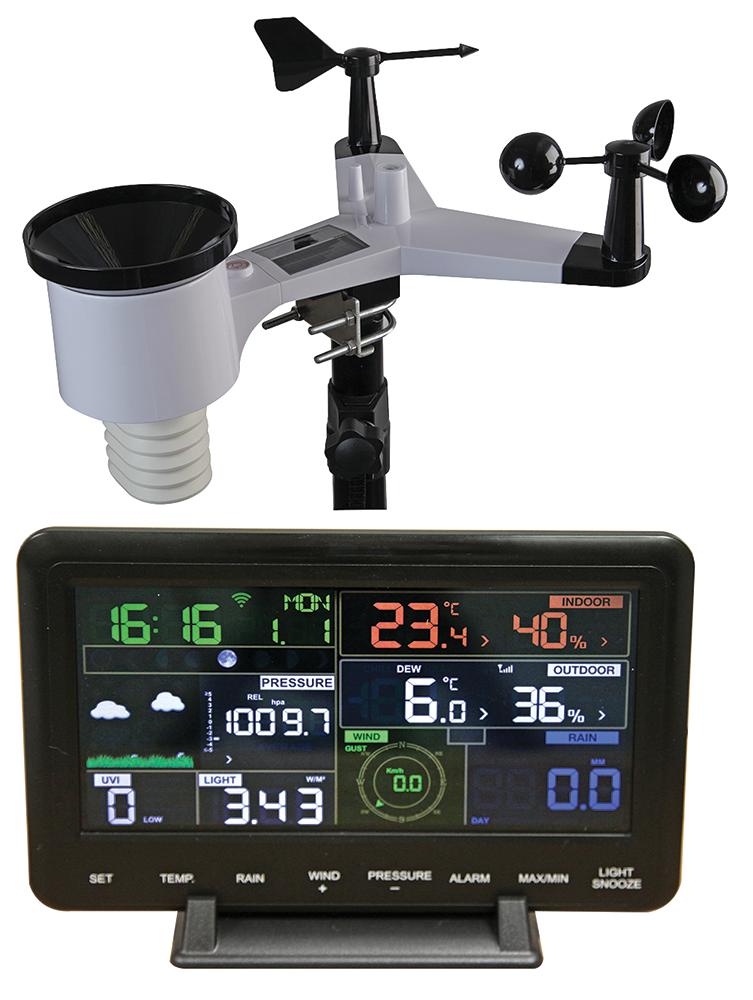Making The Most Of the Advantages of a Professional Climate Station for Accuracy Projecting and Analysis
In the world of weather forecasting, the use of expert weather condition terminals plays an essential role in getting trusted and specific data for forecasting and evaluation. The benefits that stem from harnessing the capacities of such advanced weather condition terminals are impactful and substantial. From ensuring the precision of weather information to boosting projecting models and using advanced information evaluation techniques, expert weather stations offer a riches of opportunities for different industries and decision-making procedures. As we discover the midsts of maximizing these benefits, a clearer picture arises of the transformative possibility they hold in forming our understanding of weather patterns and phenomena.
Value of Accurate Weather Condition Data
Exact weather condition data plays a crucial role in different industries, giving important info for decision-making and risk administration. In the energy market, weather data helps anticipate energy consumption patterns, enhance manufacturing, and take care of prospective threats such as storms or extreme temperature levels.
Building tasks are extremely reliant on climate condition, with exact information allowing far better scheduling of tasks and source allocation. Furthermore, exact weather condition information is vital for catastrophe preparedness and emergency action preparation. By having access to trustworthy weather data, organizations can mitigate dangers, minimize functional disruptions, and enhance total performance. Consequently, purchasing expert weather terminals to gather accurate and timely information is necessary for industries seeking to improve their decision-making processes and ensure optimum performance.

Improved Projecting Abilities
With developments in innovation and data evaluation, weather terminals are now furnished to provide more detailed and accurate forecasting abilities. These boosted projecting capacities stem from the ability of expert weather condition terminals to gather real-time information on different atmospheric criteria such as temperature level, moisture, wind rate, and rainfall. By continuously monitoring these aspects, weather stations can generate highly accurate temporary and lasting projections.
One substantial benefit of professional weather stations is their capacity to spot refined changes in atmospheric conditions that might show approaching weather condition patterns - Weather Stations. This ability enables scientists and meteorologists to release prompt warnings for severe climate events like storms, blizzards, or electrical storms, helping areas prepare and mitigate potential problems
Additionally, professional weather condition terminals typically integrate innovative algorithms and designs to evaluate historic data fads and anticipate future weather patterns with higher precision. These forecasting devices allow users to make educated decisions based on trustworthy weather forecasts, whether it's for farming preparation, exterior event administration, or basic day-to-day activities.

Essentially, the enhanced forecasting capacities of specialist weather stations equip users with useful understandings into upcoming weather, cultivating much better prep work and decision-making in various industries. (Weather Stations)
Using Advanced Data Evaluation

One secret advantage of making try this site use of advanced information analysis in specialist weather stations is the capability to improve the accuracy of temporary and long-term weather report. By assessing historical weather condition information alongside real-time observations, weather stations can establish extra specific projecting models that take into consideration various meteorological elements and variables. This improved level of analysis enables scientists and meteorologists to better understand weather condition patterns, forecast serious weather condition occasions, and provide more in-depth projections to the public.
Applications Across Various Industries
The assimilation of professional climate station information finds comprehensive applications throughout diverse sectors, affecting procedures and decision-making processes. In farming, farmers utilize climate station information to optimize watering schedules, display crop health and wellness, and predict yield end results. The data aids in establishing the optimal growing times, decreasing water wastefulness, and alleviating weather-related threats.
The transportation site link sector benefits from climate terminal information by improving path preparation, managing logistics, and improving safety steps. Airline companies depend on precise weather report to lessen trip hold-ups, prevent disturbance, and guarantee guest convenience. Similarly, maritime operations use this information to browse securely, stay clear of tornados, and optimize fuel consumption.
Construction companies take advantage of weather condition station information to prepare exterior tasks efficiently, protect against weather-related crashes, and decrease task hold-ups. By keeping an eye on wind rates, temperature level variations, and rainfall degrees, building contractors can optimize job timetables and make certain employee safety. Generally, the diverse applications of professional weather terminal data underscore its importance in enhancing functional efficiency and informed decision-making throughout various sectors.
Improving Decision-Making Procedures
Improved access to exact and real-time weather condition data substantially enhances the accuracy of decision-making procedures throughout sectors. By using an expert weather terminal, companies can make educated choices based on forecasted and existing weather. This data is especially vital for markets such as farming, building and construction, transportation, and emergency situation management, where weather directory condition plays a significant function in procedures and safety and security.
In farming, access to specific weather condition information enables farmers to optimize irrigation routines, strategy growing and gathering tasks, and minimize risks related to severe weather events. Construction companies can better plan exterior projects, routine work effectively, and make certain the safety and security of their workers by keeping track of weather condition conditions in real-time.
Additionally, transportation firms can improve path planning, adjust routines based upon weather projections, and boost total operational effectiveness. In emergency management, accurate weather information makes it possible for aggressive decision-making, timely responses to natural catastrophes, and reliable interaction with the public to ensure their safety. On the whole, the integration of a specialist climate station into decision-making processes empowers sectors to make strategic and enlightened selections, eventually causing enhanced outcomes.
Final Thought
Finally, using a specialist weather condition station uses substantial benefits for accuracy projecting and evaluation. By offering accurate climate data, improving projecting abilities, and making it possible for innovative information evaluation, it can boost decision-making procedures across numerous sectors. This tool is crucial for making best use of the capacity of climate data and guaranteeing even more educated and reliable procedures.
From guaranteeing the precision of climate data to improving projecting models and utilizing innovative data analysis methods, specialist weather terminals supply a wide range of chances for decision-making processes and various markets. Via the usage of device understanding algorithms, clustering methods, and anticipating modeling, climate terminals can boost their forecasting capabilities and offer even more prompt and accurate weather predictions.
One key benefit of making use of advanced data analysis in professional weather terminals is the capability to boost the precision of short-term and long-term weather condition projections. By analyzing historic weather condition data along with real-time monitorings, weather terminals can establish more specific forecasting designs that take right into account various meteorological variables and variables. By making use of a professional weather condition terminal, companies can make educated decisions based on forecasted and current weather conditions.